BIMSTEC Summit 2025: India’s Visionary Leadership Paves the Way for Regional Integration
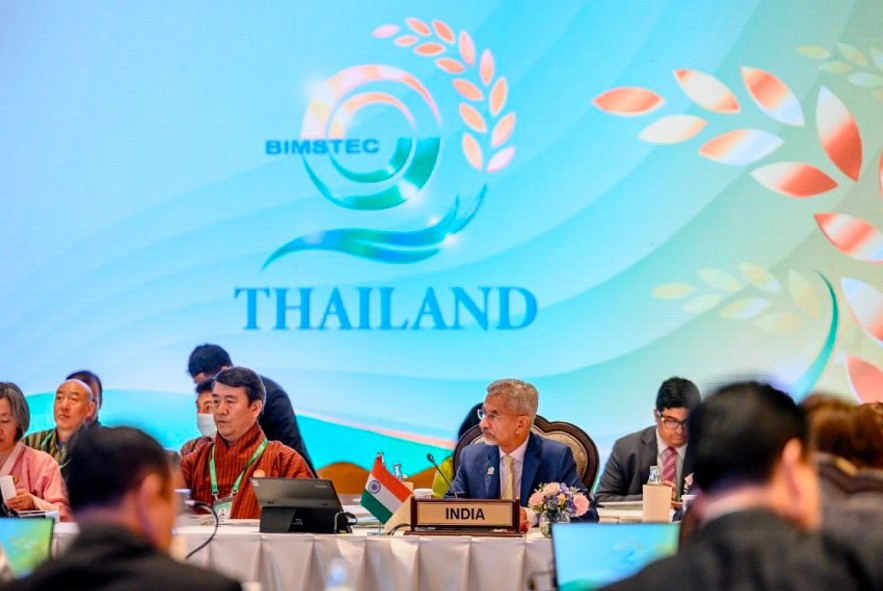 |
This pivotal gathering highlights BIMSTEC’s escalating role in uniting its seven member nations: Bangladesh, Bhutan, India, Myanmar, Nepal, Sri Lanka, and Thailand. Collectively, these countries represent a population surpassing 1.7 billion and a combined GDP exceeding $5 trillion, positioning BIMSTEC as a formidable economic bloc on the global stage.
Since its inception in 1997, BIMSTEC has acted as a conduit between South and Southeast Asia, promoting cooperation across 14 priority sectors such as trade, investment, transport, communication, energy, and counter-terrorism. The current summit, themed “Prosperous, Resilient, and Open BIMSTEC,” is set to adopt the Bangkok Vision 2030—a strategic framework aimed at long-term objectives encompassing economic collaboration, environmental sustainability, and regional security.
India’s Leadership: A Driving Force
As the largest economy and a founding member of BIMSTEC, India plays an instrumental role in directing the organization’s initiatives. The nation’s “Neighbourhood First” and “Act East” policies align seamlessly with BIMSTEC’s goals, emphasizing enhanced regional connectivity and integration. India’s dedication is evident through its leadership in key sectors:
- Security and Energy: India spearheads efforts to bolster regional security cooperation and energy integration. The establishment of the BIMSTEC Energy Centre in Bengaluru exemplifies initiatives to promote energy collaboration among member states.
- Counter-Terrorism and Transnational Crime: Recognizing the necessity of a secure environment for regional prosperity, India has been pivotal in advancing joint efforts to combat terrorism and transnational crimes.
Furthermore, India’s substantial financial support, covering 32% of the BIMSTEC Secretariat’s expenditure in Dhaka, underscores its commitment to the organization’s operational effectiveness.
Forging a Multipolar World Order
In an era marked by shifting geopolitical dynamics, BIMSTEC provides a platform for its members to assert collective influence. India’s proactive engagement within BIMSTEC reflects a strategic move towards fostering a multipolar world order, where regional groupings play a crucial role in global governance.
Maritime Connectivity: A New Horizon
A landmark achievement of the summit is the signing of the Agreement on Maritime Transport Cooperation, poised to enhance maritime connectivity across the Bay of Bengal. This agreement facilitates smoother cargo and passenger movement, bolstering intra-regional trade and positioning BIMSTEC as a critical player in global maritime logistics.
Collaborative Efforts with Global Organizations
BIMSTEC’s collaboration with entities like the Indian Ocean Rim Association (IORA) and the United Nations Office on Drugs and Crime (UNODC) demonstrates a commitment to addressing transnational challenges through cooperative frameworks. These partnerships amplify BIMSTEC’s voice in international forums, contributing to shaping norms and policies that reflect the collective interests of its member states.
Navigating Challenges Ahead
Despite its potential, BIMSTEC faces challenges that could impede progress. The organization’s broad mandate across numerous sectors risks diluting focus and stretching resources thin. Streamlining priorities and ensuring effective implementation mechanisms are essential to translate commitments into tangible outcomes.
India’s leadership is crucial in navigating these challenges. By leveraging its diplomatic influence and economic clout, India can drive consensus-building, enhance institutional capacities, and promote a results-oriented approach within BIMSTEC. Additionally, fostering people-to-people connections and cultural exchanges can strengthen the foundational ties underpinning regional cooperation.
As BIMSTEC members convene in Bangkok, with India’s Prime Minister Narendra Modi in attendance, the summit represents more than a routine diplomatic engagement; it embodies a collective aspiration for a prosperous and integrated Bay of Bengal region. India’s leadership within BIMSTEC is not merely a reflection of its regional ambitions but a testament to its commitment to collaborative growth and stability. By championing initiatives that promote connectivity, security, and sustainable development, India, alongside its BIMSTEC partners, contributes significantly to shaping a new world order—one that values regional cooperation as a cornerstone of global peace and prosperity.
Recommended
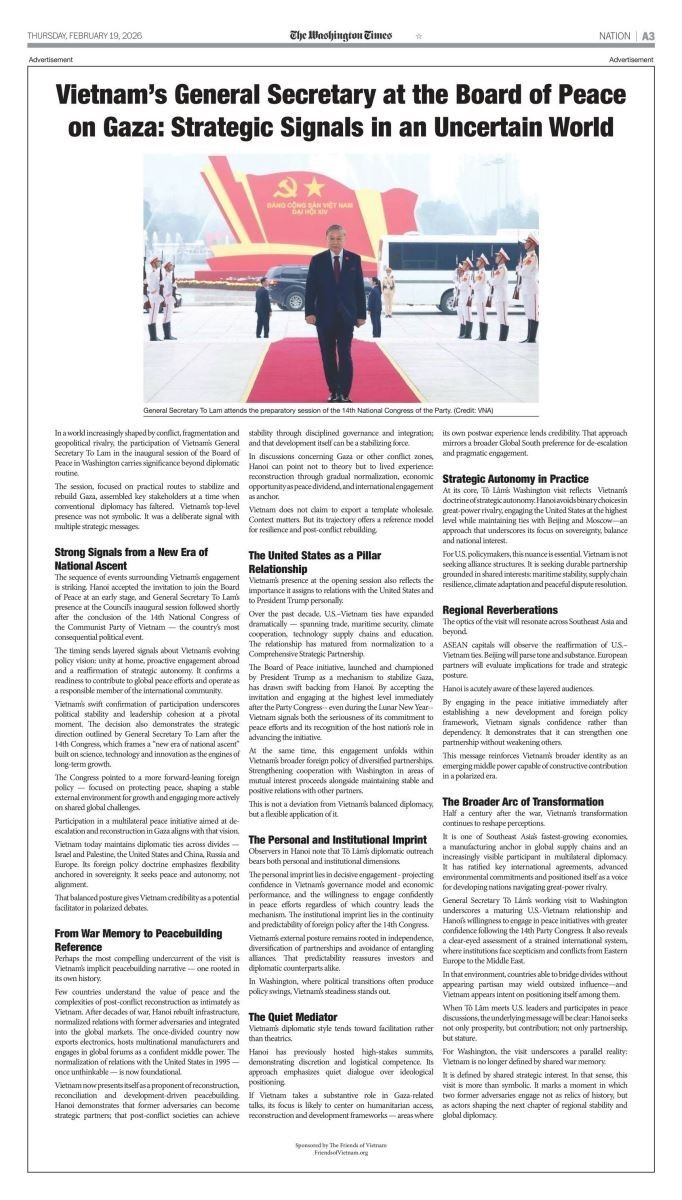 World
World
US Media Commend Vietnam’s Role in Global Peace Efforts
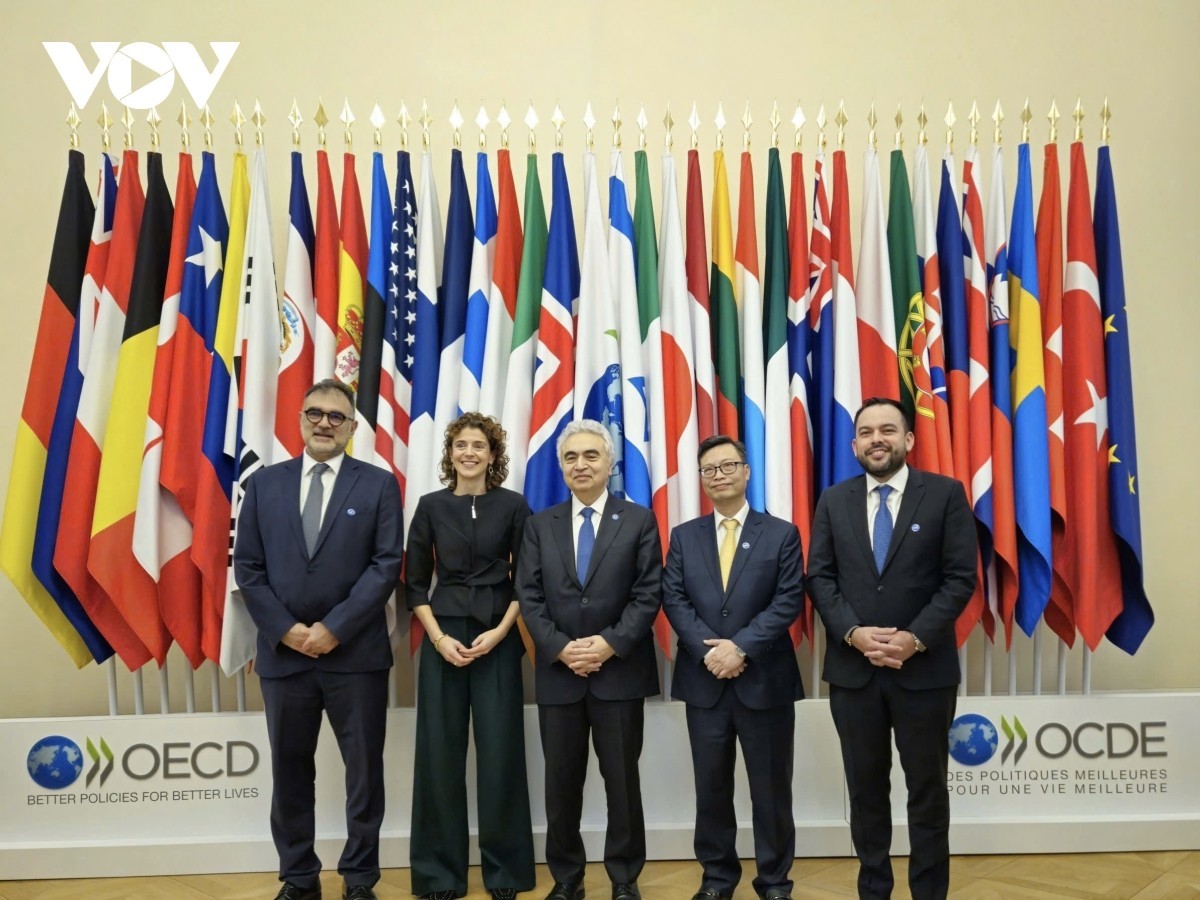 World
World
Vietnam Officially Becomes Association Country of International Energy Agency (IEA)
 World
World
Key pacts signed as PM Modi hosts France's Macron for plane cooperation
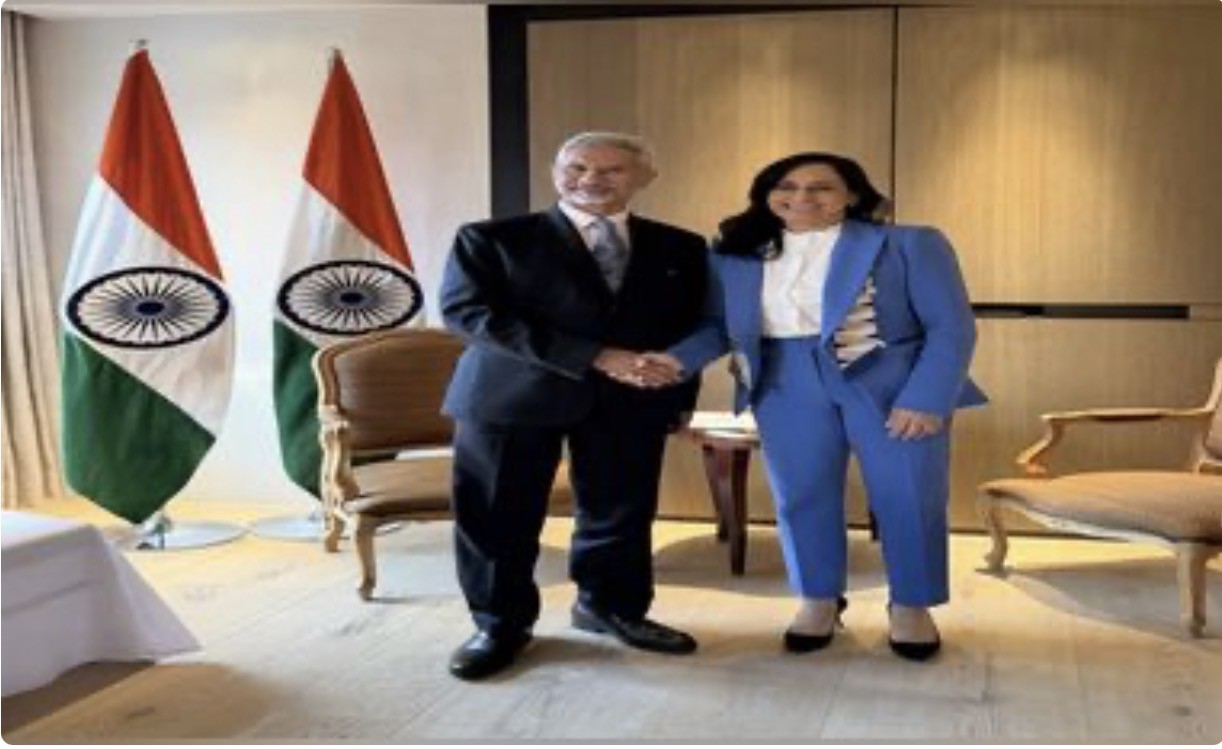 World
World
India, Canada commit to strengthening bilateral ties, discuss trade
 World
World
AI Summit India 2026 Live Updates: ‘Bringing the world together,’ PM Modi welcomes leaders as India hosts AI summit
 World
World
Safran ready to open India engine production in Rafale deal
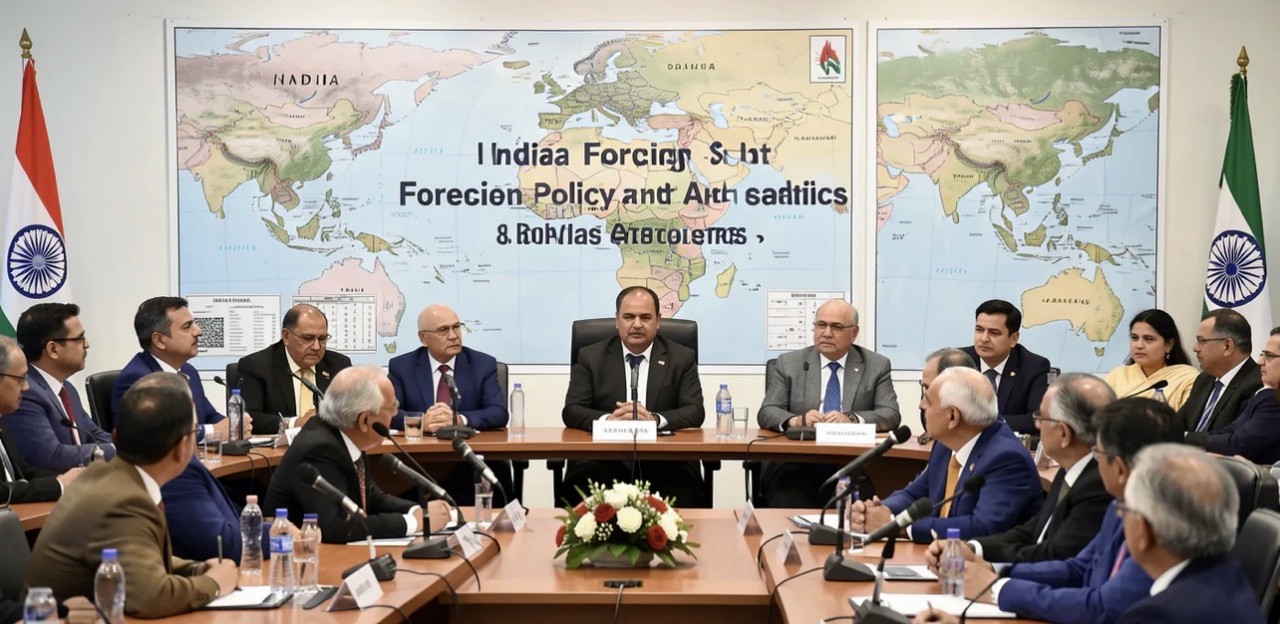 World
World
Nepal interim PM Sushila Karki thanks India for March support
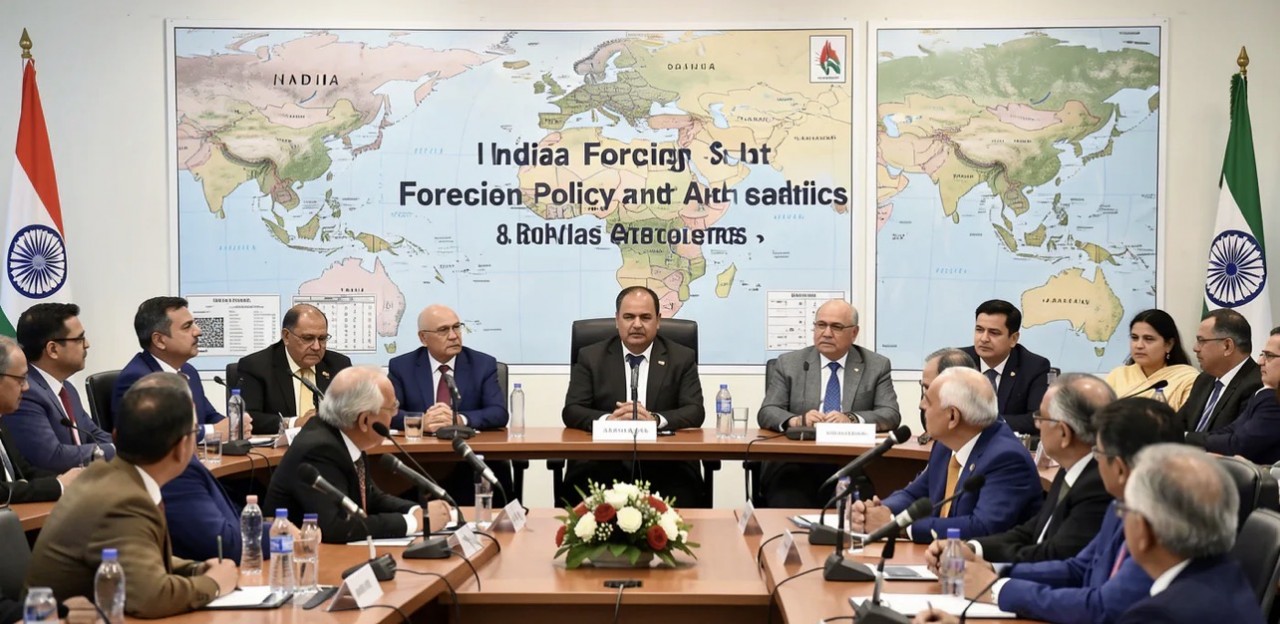 World
World
